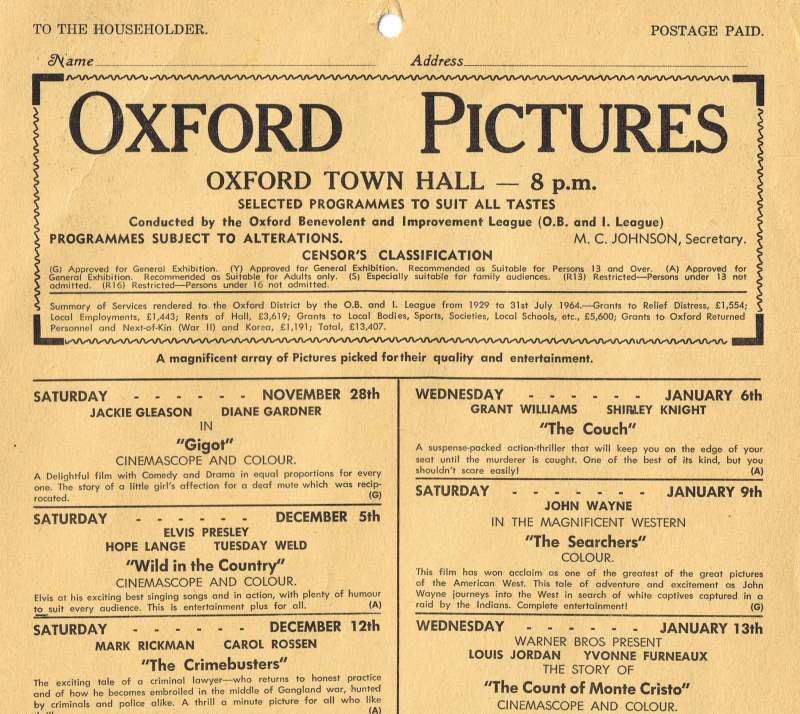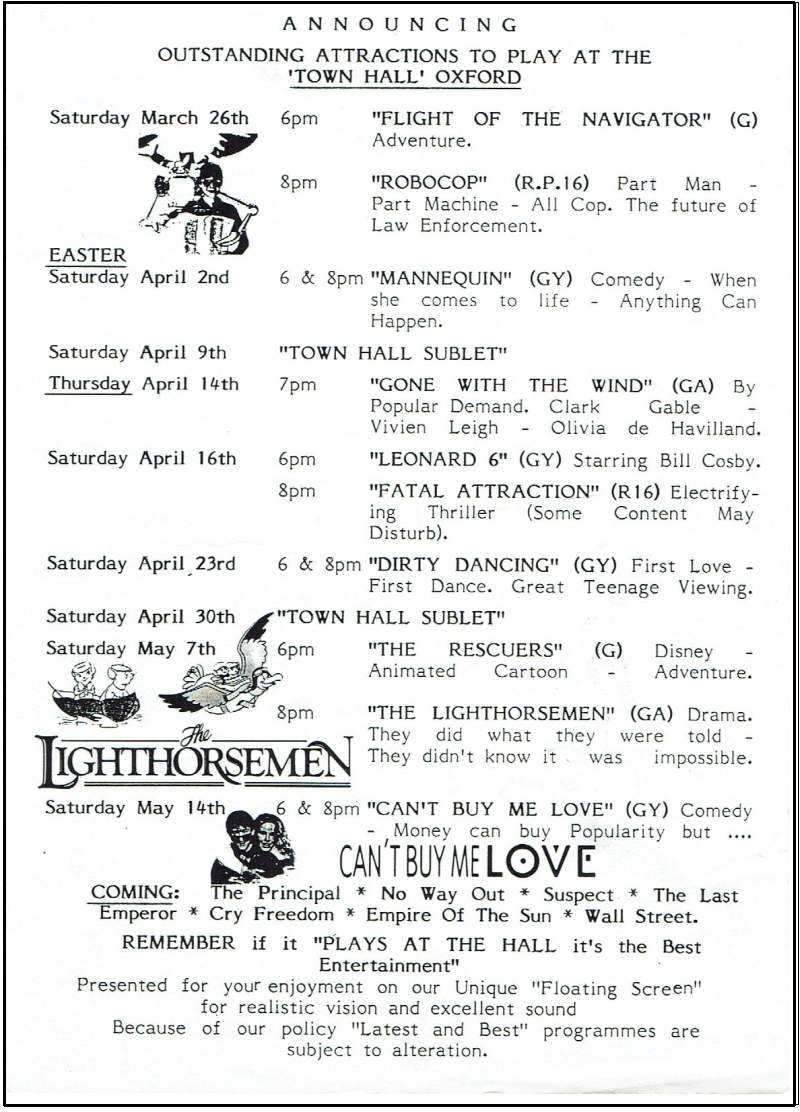About the OB&I
The year was 1914, New Zealand answered the call to be part of the Allied effort of the Great War. Oxford men fought, and some did not return. Their names are remembered on a plaque that hangs in the Town Hall to this day.
On the 6th October, 1915, thirteen Oxford citizens formed the Oxford Patriotic Society. By raising funds through showing films to the community, the Society supported servicemen, and provided financial support to the widows of those lost in the war.
The Society continued for a while after the War, but the members determined that the original purpose
of the Society had been fulfilled. However, they were adamant that something should take its
place. Thus on the 2nd of August, 1921, the Patriotic Society disbanded, and the twenty minutes later, the Oxford Benevolent and Improvement
League was formed. The League had as its purpose, then, as now:
A newspaper article of the day, from The Press, dated 7 August 1920, describes the meeting as follows:
At the final meeting of the Oxford Patriotic Committee, Mr Hawke presided over a good attendance. After routine business had been attended to, the report of the sub-committee appointed to make recommendations was received. It recommended that the whole of the funds and plant [the movie projectors and sound equipment] of the Oxford Patriotic Committee be vested in five trustees to be elected by the committee, and disbursed in accordance with resolutions already passed, and that in the event of the late Oxford Patriotic Committeo continuing to carry on the pictures, the plant be leased to them; that the Oxford Patriotic Committee disband from this date; that the late Oxford Patriotic Committee be constituted under the title of the Oxford Benevolent and Improvement League, such League to consist of not less than twelve members, and not more than twenty-five, the League to deal with all business, and carry on in the public interests. The report was adopted. Messrs D. Hawke, L. Watson, F. Debenham, T. Powell, and Dr. Bagley were elected trustees.
The meeting adjourned to allow of the writing up of the minutes, which were duly confirmed and signed, and the committee disbanded. The members reassembled, and were constituted a League according to the recommendation of the committee. The officers of the committee continue officers of the League until the September meeting. Before the meeting closed the chairman expressed appreciation of the good attendance, and the valuable services of the members during the five years the committee had been in existence, and expressed a hope that a watchful eye would be kept on the needs of returned soldiers, and a helping hand extended.
And thus the Oxford Benevolent and Improvement League was born.
In 1924 the Oxford Town Hall Company went into liquidation, and needed to sell the "old" Town Hall, which had been built in 1880. It had been offered to the County Council, but they were unable to meet the cost. The League purchased the then "old" Town Hall, for £400 to save it for the community. (Oxford has had several Town Halls over the years!)
It was 1931 however, that was the turning point for the League, and for Oxford. A new Town Hall was deemed to be required, not only because the 1880-built hall was nearing the end of its useful life, but as a political measure, to unite East Oxford and West Oxford, each of which had their own Town Halls (and own railway stations!), into just one Oxford.
Thus the Oxford Town Hall that stands today was erected, and the OB&I donated the old Town Hall to the Council, so that there would be no competing Town Halls.
History records that the first movie with synchronised sound was "The Jazz Singer", starring Al Jolson, released on October 6, 1927, and it was immediately evident that the silent movie era was over. Thus when the current Town hall was built in 1931, the then latest "talkie" movie equipment was installed, some of which now resides in the Oxford Museum.
The first movie shown in the new Town Hall was "Crooks can't win" (IMDB, NY Times (terrible) review, Wikipedia), screened on June 6th 1931. Perhaps strangely, given the newly installed equipment for talking pictures, this was a silent film. Movie goers would have to wait until the 25th of August for the talkies experience, when "Vagabond Lover" was screened. Wikipedia notes that this was "an early example of a vehicle created for a popular music star, [Rudy Vallée] in a echoed by later films such as Jailhouse Rock with Elvis Presley and A Hard Day's Night with The Beatles."
By 1932 the League had placed disbursements of over £1,200 to the Community.
Lancelot Watson in his book "The Story of Oxford 1852 - 1932" noted that The League has:
For many years the Town Hall was Oxford's only entertainment, for either movies or dancing, and old timers still tell stories of how the long queues stretched around the outside of the Town Hall. The mass adoption of cars and television has reduced the appeal of the Town Hall movies compared to as recently as the 1960s, but some movies can still attract a Town hall full of customers.
The Bulletin
Before the Waimakariri District Council published The Bulletin, the OB&I
printed and distributed a flyer to the homes of Oxford, advising of the
forthcoming movies. This was printed on a quite large piece of light card
of which this is a part:

By the 1980s they had shrunk to A5 format












